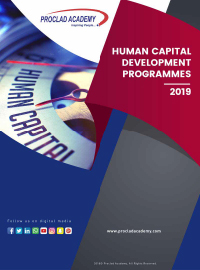Communication, Interpersonal & Influencing Skills
| Ref No. | Dates | Venue | Fee (US$) | |
|---|---|---|---|---|
| MG 020 | 22 - 26 Jun 2020 | Paris | 5000 | Register |
| MG 020 | 16 - 20 Nov 2020 | London | 5000 | Register |
Communication, Interpersonal & Influencing Skills
Introduction
Getting people to do what you want/need them to do can be the most difficult task. Organizational success depends upon the ability of team members to communicate with each other using multiple means and channels. Interactions with team members will determine how we are being perceived and each of these interactions is an opportunity to accomplish a planned purpose. Communicating & influencing effectively is one of the most powerful skills for achieving organizational objectives.
PROCLAD Academy’s Communication, Interpersonal & Influencing Skills training course will help you develop the skills you need to focus on your purpose, profile your audience and develop your message with clarity for an ideal impact and outcome. The ability to create an environment for open discussion and ongoing dialogue is crucial for communication success. The communication, interpersonal & influencing skills covered in this training course will help increase your ability to become better at active listening, receiving and giving effective feedback, dealing with different and diverse cultures, and managing conflicts in order to improve quality of relationships and productivity.
The key features of PROCLAD Academy’s Communication, Interpersonal & Influencing Skills training course are:
- Techniques to enhance effectiveness in communication, interpersonal and influencing
- Understanding the fact that ANYONE can be influenced
- Simple identification of people’s needs and behaviors
- Elevating sensitivity towards understanding people who are different in many perspectives
- Positively apply organizational politics
Learning Objectives
Participants on the PROCLAD Academy’s Communication, Interpersonal & Influencing Skills training course will be able to:
- Apply the skills necessary to communicate in an effective manner
- Demonstrate their ability to communicate across cultures
- Employ techniques for listening actively and empathically
- Manage interpersonal conflict
- Acquire the techniques in influencing people
- Handle feedback and criticism constructively
Target Audience
PROCLAD Academy’s Communication, Interpersonal & Influencing Skills training course is intended for:
- Professionals who need to communicate and present more effectively
- Key communicators, leaders and middle managers
- Personnel who need to influence and persuade other people more effectively in their role
- Anyone who intends to be successful in influencing people
Training Methodology
PROCLAD Academy’s Communication, Interpersonal & Influencing Skills training course will be presented using a combination of lecture, practical/hands on approach such as role plays, case studies, presentation, and video.
Course Outline
- Communication levels and definitions
- The principles of interpersonal communication
- Elements of the communication process
- Communication delivery aspects
- Non-verbal communication
- Building rapport
- Where can miscommunication occur?
- Barriers to effective communication
- Overcoming communication barriers
- Improving cross-cultural communication: guidelines
- Stages of team development
- The arts of persuasion
- Areas of growing your sphere of influence
- Communicating within multi-cultural teams
- Stages of team growth
- Universal laws of persuasion: process
- Hearing versus listening
- Active versus passive listening
- Tips to improve active listening skills
- The aspects of active listening
- Active listening skills inventory
- Using different questioning techniques
- Closed and open questions
- Probing types questions
- Pitfalls of leading questions
- Assertive, passive and aggressive behaviors
- Verbal and non-verbal components of communication behaviors
- Conflict management
- Types of conflicts
- Sources of conflicts
- Conflict management styles
- Essential conflict management skills
- Learning to say ‘no’
- Guidelines for applying ‘no’
- The Power of Influence
- Definition of organizational politics
- The value of feedback
- Positive versus negative feedback
- Giving constructive criticism
- Receiving criticism


